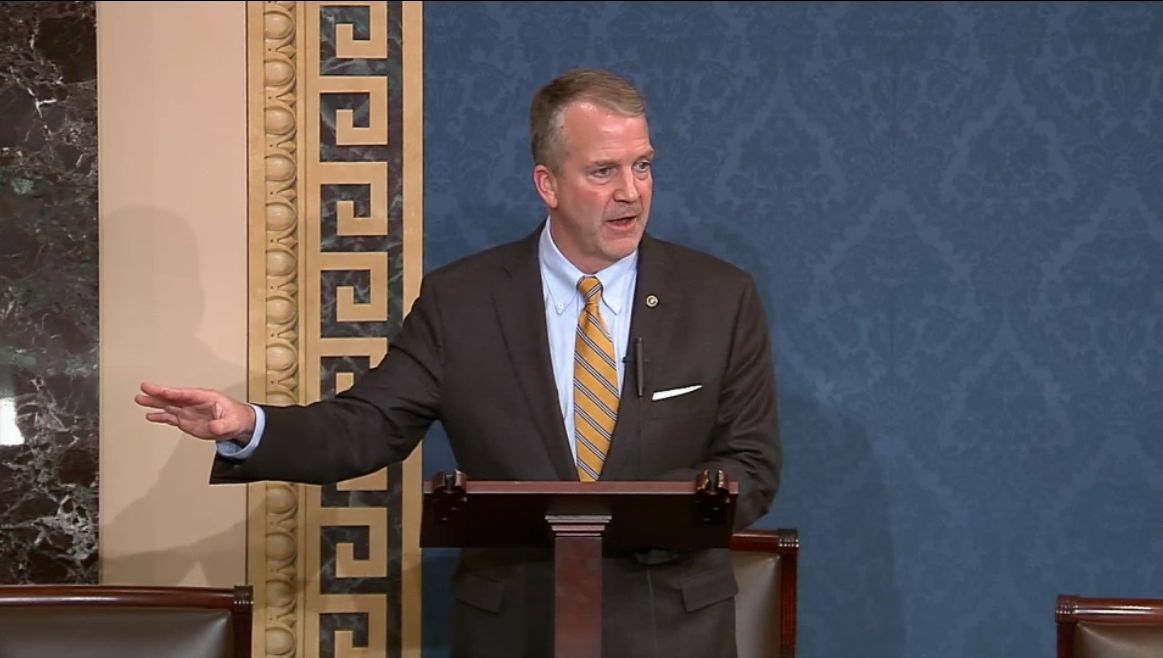Sullivan Fulfills Years-Long Commitment to Permanently Exempt Alaska Fishing Vessels from Incidental Discharge Regulations
Bipartisan Coast Guard Authorization Bill Passes Senate
WASHINGTON, DC – U.S. Senator Dan Sullivan (R-AK), Chairman of the Oceans, Atmosphere, Fisheries, and Coast Guard subcommittee, today applauded the Senate passage of the Frank LoBiondo Coast Guard Authorization Act of 2018, bipartisan legislation he co-authored to support the Coast Guard and its many missions. The legislation, which passed today by a vote of 94 to 6, includes a Sullivan-negotiated provision known as the Vessel Incident Discharge Act (VIDA) to provide Alaska fishing vessel owners and operators relief from a patchwork of overly burdensome and confusing federal and state regulations for vessel ballast water and incidental discharges.
The provisions provide a permanent exemption on incidental vessel discharge for all commercial fishing vessels and commercial vessels under 79 feet in length. Without this exemption, small vessel operators and fishermen would be forced to obtain Environmental Protection Agency (EPA) permits for even the most basic activity, including vessel deck runoff, hosing out their fish holds, and other minor discharges. The language also provides a comprehensive fix to a broken regulatory framework by establishing a single, nationally uniform standard for the regulation of ballast water and other vessel discharges.

Senator Sullivan applauds passage of the Coast Guard Reauthorization Act of 2018 in speech on the Senate floor (click here to watch).
“Plain and simple, this issue – which dates back over a decade – has created nothing but uncertainty for Alaska’s fishermen, diverting attention and resources from running their businesses to complying with needless federal regulations,” said Senator Sullivan. “VIDA will provide Alaska’s fishermen with a long sought peace of mind from the threat of federal regulation. While this issue has taken over a decade to resolve– with a series of 11th hour, temporary extensions over the years – I’m pleased to see Congress provide Alaska’s fishermen with a permanent exemption from these over burdensome regulations.”
The Coast Guard Authorization Act of 2018, a bicameral agreement championed by Senator Sullivan, authorizes increased funding to support the mission and needs of the U.S. Coast Guard through 2019.
“The brave men and women of the U.S. Coast Guard do an amazing job protecting the homeland day in and day out and often on a moment’s notice,” said Senator Sullivan. “I am honored to have the opportunity to lead this year’s Coast Guard Authorization, giving our Coast Guard the resources and training they need to complete the many diverse missions they are tasked with. The legislation also includes a number of provisions important to Alaska, including relieving unnecessary burdens on fishermen and boat operators, and advancing the Coast Guard’s ability to operate in the Arctic.”
Specifically, the Coast Guard Authorization Act of 2018:
Protects and provides for vital assets:
- Authorizing the Coast Guard to use multi-year contracts to procure three additional National Security Cutters.
- Expressing that the Coast Guard must position assets to ensure it is positioned to respond to any incidents given the national security and economic significance of the Arctic, and requires the Coast Guard, in consultation with the Department of Defense, to report to Congress on progress being made in implementing the service’s Arctic Strategy, and provide an assessment on the placement of assets and cutters in light of these strategic objectives.
- Ensuring regions continue to have Coast Guard coverage as vessels or aircraft are recapitalized.
- Including an amendment sponsored by Senator Cantwell (D-WA) and Senator Sullivan requiring the Coast Guard to deliver a plan on extending the life of the Polar Star, and authorizing funding to execute the plan.
- Requiring the examination of the feasibility of a Coast Guard ROTC program.
Provides regulatory relief:
- Permanently exempting fishing vessels from incidental discharge regulations.
- Lessening the logbook requirements on charter fishing vessels, ferries, and certain passenger vessels by allowing the use of a wider variety of logbooks, including electronic records.
- Requiring a delay of the compliance deadline for the Alternative Safety Compliance Program by three years, should the Coast Guard change course and issue final rules.
- Reducing burdens on the cost of building new fishing vessels, and lessening regulatory burdens on fishermen and boaters.
- Enhancing the role of the Commercial Fishing Safety Advisory Committee, which provides relevant stakeholders with increased influence in regulatory matters affecting them.
Protects Alaskan resources and stimulates the economy:
- Directing the Coast Guard to conduct persistent aircraft-based surveillance in monitoring illegal, unreported and unregulated fishing in the Western Pacific.
- Requiring the Coast Guard to have tested the capability of oil spill vessel response plans in Alaskan waters and report to Congress on these capabilities.
- Authorizing a land exchange to provide for permanent protection of a bird rookery, while providing potential economic development opportunities on Kodiak Island.
- Giving the Coast Guard more flexibility in choosing which shipyards it uses to conduct vessel alterations and repairs, in an effort to allow more work to stay in Alaska.
The legislation also includes provisions from Senator Sullivan’s S. 171, the National Oceanic and Atmospheric Administration Commissioned Officer Corps Amendments and Hydrographic Services Improvement Act Reauthorization and Amendments Act of 2017, which reauthorizes funding to update and maintain the nation’s nautical charts with an emphasis on the Arctic and facilitates the construction of a viable homeport for the NOAA research vessel Fairweather in Ketchikan.
###
Next Article Previous Article
